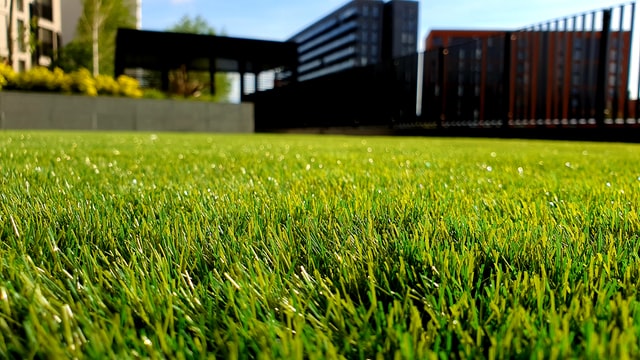PVC and ABS are two of the most widely used plastics. They are both strong, durable, and versatile. But some key differences make them suitable for different applications. PVC is made from polyvinyl chloride, a chlorine-based compound. It is rigid, meaning it doesn’t flex or bend easily. It has high tensile strength, making it ideal for piping and conduit.
PVC is also resistant to chemicals and corrosion. And because it’s so sturdy, it’s often used in construction projects. ABS is made from acrylonitrile butadiene styrene, a synthetic rubber compound. Unlike PVC, ABS is flexible and can be molded into complex shapes. It’s also more formidable and more scratch-resistant than PVC. ABS is commonly used in car parts, electronic devices, and Lego bricks!
PVC vs. ABS for Drain Pipe
One of the most important choices a homeowner has to make regarding their plumbing is what kind of pipe to use for their drain. Two main types of pipe are used for drains, PVC (Polyvinyl chloride) and ABS (Acrylonitrile butadiene styrene).
Both have unique benefits and drawbacks, so it is essential to know the difference before deciding.
- PVC pipes are the most commonly used type of drain pipe. They are made from PVC resin and other chemicals that give them a rigid structure.
- PVC pipes are solid and can withstand high pressures, making them ideal for homes with large families or heavy water usage. They are also resistant to corrosion and can last for decades with proper maintenance.
However, PVC pipes are not as flexible as ABS pipes and may crack under extreme pressure or temperatures.
- ABS pipes are made from a thermoplastic polymer that gives them flexibility while maintaining strength.
- This makes them ideal for areas with potential for shifting or movement, such as foundations or walls. They are also less likely to crack in cold weather than PVC pipes.
However, they may sag over time without proper support because they are not as rigid. It is also more susceptible to damage from chemicals than PVC pipes. When choosing between PVC and ABS pipes for your drain, there is no clear right or wrong answer; it simply depends on your specific needs and circumstances.
If you need a Pipe That Is: then choose:
- Flexible –> an ABS pipe
- Very strong –> A PVC pipe
- Resistant to corrosion –> A PVC pipe
Of course, consulting with a professional plumber is always the best way to ensure you’re choosing the right type of drain pipe for your home.
ABS vs. PVC Pipes
Two main types of pipes are commonly used in plumbing applications: ABS and PVC.
Both offer a variety of benefits, but some key differences should be considered when deciding which type of pipe to use. ABS, or acrylonitrile butadiene styrene, is a black plastic commonly used for drain, waste, and vent applications. It is strong and durable, making it an excellent choice for high-pressure applications.
However, it is unsuitable for hot water due to its poor heat resistance properties.
PVC, or polyvinyl chloride, is white or light gray and is the most common type of plastic pipe used in plumbing applications. It is lightweight and easy to install, but it is not as strong as ABS and can be damaged by exposure to sunlight or chemicals. It is also not suitable for use with hot water.
ABS vs. PVC Drain
There are many different types of drains on the market, but two of the most popular options are abs and PVC drains. Both of these products have their pros and cons, so it’s essential to know which one is right for your needs before making a purchase.
Abs drain pipes are made from acrylonitrile butadiene styrene, a type of plastic. These pipes are less flexible than PVC drains but more resistant to impact damage. They’re also less likely to deform in high temperatures. However, abs drains are more susceptible to chemical damage than PVC pipes.
Pvc drain pipes are made from polyvinyl chloride, another plastic type. Pvc pipes are more flexible than abs drains, but they’re not as resistant to impact damage. They can handle high temperatures without deforming, but they’re more likely to be damaged by chemicals than abs pipes.
When it comes to choosing between abs and PVC drains, there is no clear winner. It depends on your individual needs and preferences. If you need a drain pipe that can withstand high temperatures or harsh chemicals, then abs are the better option. However, if you need a pipe that is more flexible and tolerant of impact damage, then PVC might be the better choice.
ABS & PVC Piping Provide Different Advantages
ABS vs. PVC Pipes: Which is better? This is a question that many people ask when they are looking to replace or install new pipes in their homes. The answer to this question is not as simple as it may seem. ABS and PVC pipes have advantages and disadvantages that need to be considered before a decision can be made.
ABS, or Acrylonitrile Butadiene Styrene, piping is a black plastic pipe used for drainage, waste, and vent systems in homes. This type of piping is less expensive than PVC piping and is easier to install.
However, ABS piping is not as durable as PVC piping and can become brittle, especially in cold climates. PVC, or Polyvinyl chloride, piping is a white plastic pipe used for drainage and water supply lines in homes. This type of piping is more expensive than ABS, but it is also more durable.
PVC pipes are not prone to cracking or breaking like ABS pipes and can withstand high temperatures without becoming deformed.
Working with ABS or PVC Piping
When working with either type of piping, it is essential not to damage the material. ABS and PVC are strong and durable but can be scratched or nicked easily. Be sure to use a cutting board or something similar when cutting the pipes so that you do not damage them.
It is also essential to use the correct fittings when joining two pieces of pipe together. With ABS piping, you will need to use an adhesive designed specifically for that type of piping. With PVC piping, you can simply cement the joints using PVC-specific cement.
Once the pipes are cut and fitted together, you will need to test them for leaks. This can be done by filling the system with water and watching for any dripping or slow leaks. If there are any leaks, they will need to be fixed before proceeding. Once the system is confirmed to be leak-free, you can proceed with installing it in your desired location.
ABS and PVC piping is easy to work with and provide a robust and durable connection. By taking care when cutting and fitting the pipes together, you can ensure a leak-free connection that will last for many years.
PVC for Roofing
There are many benefits to using PVC for roofing. PVC is a robust and durable material that can withstand severe weather conditions. It is also fire- and mold-resistant, making it an ideal choice for roofing applications.
PVC roofs are also very energy efficient, reflecting heat away from home and keeping the interior cooler in the summer months. In addition, PVC roofs are straightforward to install and maintain, lasting up to 50 years with proper care.







